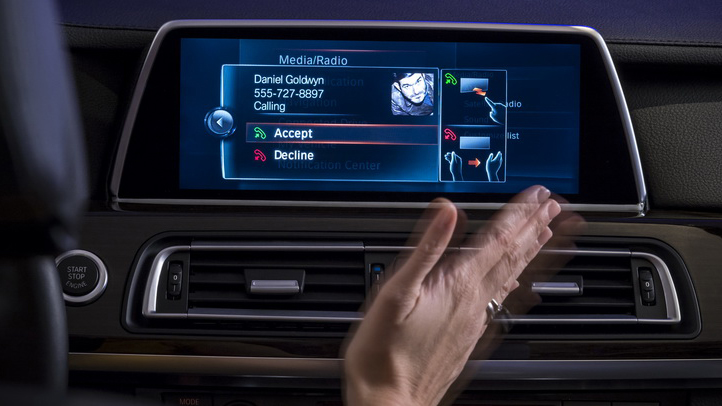
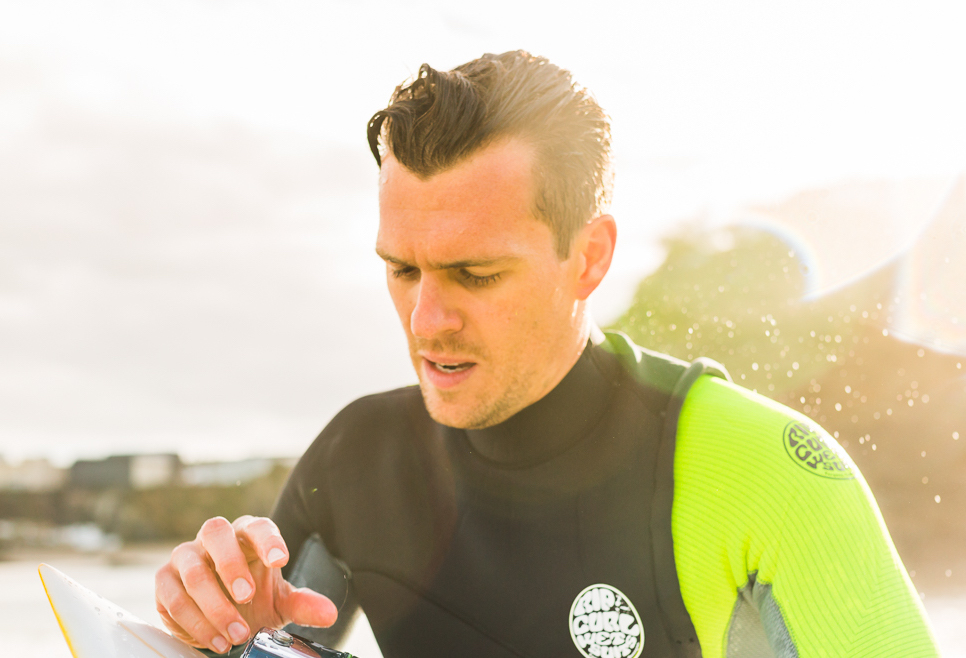
Whether you're shopping for a new hypercar or trying cut motoring costs, these are T3's big predictions for automotive tech in 2016.
• You want the best SUVs money can buy? We got 'em!
• And just for the hell of it, our favourite supercars, too
1. Hybrids will remain a big hit
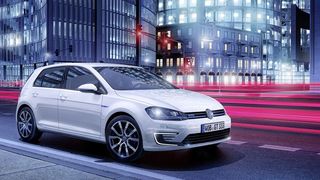
Hybrid propulsion has proven a popular way to reduce emissions and increase performance in modern cars. Everyone, from the big SUV manufacturers to makers of insane hypercars, is turning to some sort of electrification, and this is showing no signs of slowing in 2016.
Bentley's regal Bentayga and Honda's awesome NSX will fly the flag for hybrid performance, while VW has committed to battery packs and electric motors in an attempt to repair its somewhat damaged reputation. Expect the forecourts to be flooded with plug-ins next year.
2. Apple and Google will invade your car
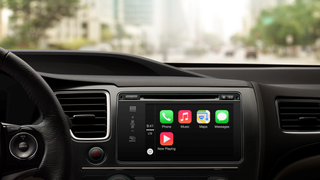
It has taken a long time for Apple and Google to get its in-car iOS and Android systems up and running, but 2016 will be the year you can finally plug in your smartphone and access apps on the move.
Volvo, Ford, Vauxhall and VW will all support one or both of the systems, while a brace of after-market head units will hit the shops and make it easier for anyone to retrofit the technology.
Sign up to the T3 newsletter for smarter living straight to your inbox
Get all the latest news, reviews, deals and buying guides on gorgeous tech, home and active products from the T3 experts
Early hands-on reviews have revealed that Android Auto currently offers the best smartphone integration, but Apple is committed to the cause, with a number of developers currently working on car-friendly apps.
3. You'll be encouraged to share
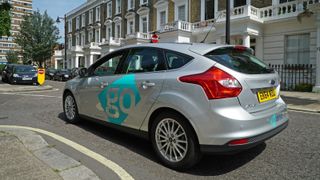
Automakers have clearly noticed that ever more customers are relying on services such as Uber or BlaBlaCar for rides, rather than purchasing cars outright, which is why car-sharing services are back on the agenda. Ford announced that its London-based Go-Drive was available in Beta stage to the public in May, while Kia has rolled out a similar app-based service in Korea.
Research by Ford suggests that in the U.K. alone the car-sharing sector will grow by 23 per cent from 2013 to 2025, with many of these services relying on all-electric vehicles. Not only is the system much greener but also punters find it easier to live with EVs when someone else deals with charging and maintenance.The success of Lyft in the USA could also see location-based peer-to-peer ride-sharing applications installed directly to the infotainment system.
4. Vehicles will talk to each other
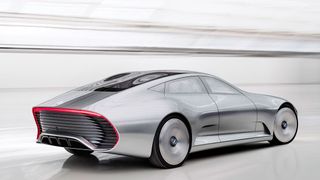
Volvo, BMW and Mercedes-Benz (IAA concept pictured above) are all currently trialling systems that see cars interact with one another and their surroundings via NFC chips and built-in SIM cards, with many unleashing 'talkative' models early next year. The idea is that the next-gen car will be able to see obstructions and potential hazards way before any human can.
For example, if a car is broken down on a hazardous bend, it can send out a distress signal to a central server, which then warns other cars in the vicinity. The system, which has been dubbed Car-to-X, works best when the majority of cars and roadside infrastructure features a generic, compatible technology. Thankfully, most manufacturers are working with the European Car 2 CarConsortium to come up with a cloud-based system that works for everyone.
5. Say "hi!" to hands-free motoring on the motorway
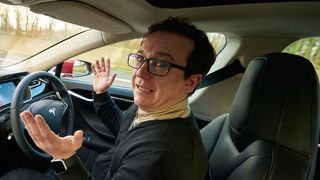
Automated driving features have already started creeping into many cars, with most premium offerings now boasting radar-based cruise control that will happily keep up with stop/start traffic with little input from the driver, but expect more to come next year.
The law is still to catch up with many autonomous functions but don't be surprised if Mercedes' upcoming E-Class paves the way for hands-free driving on the motorway.
It will feature the latest Car-to-X communications system; cutting edge safety tech and an array of radar and sensor systems that see it keep in lane and out of danger. The driver currently has to keep hands on the wheel at all times, but the big manufacturers are making great progress in proving that their tech is better than a human being. So long string-backed driving gloves, hello Candy Crush marathon.
6. You won't have to park anymore
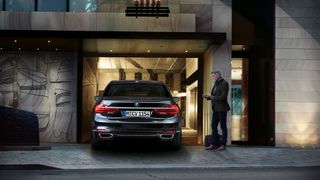
Parking sucks. It's often tricky in congested areas, it sometimes leads to smashed alloy wheels and it's deeply embarrassing when it's not done correctly, which is why most are happy to hand over valet duties to a robot. Ford, Renault and many premium brands already own a system that will hunt down parallel and reverse parking spots and then use sensors and cameras to correctly steer the vehicle into the space, only calling upon a human for throttle inputs.
But things are about to get a whole lot easier, as BMW and Mercedes-Benz now boast tech that simply requires a prod of a smartphone for perfect parking results. BMW's Remote Control Parking is already on the7 Series (due to be rolled out on more models next year) and sees the car autonomously reverse into and pull out of spaces, while Mercedes' Remote Parking Pilot does a similar thing but also caters for perpendicular parking. The latter will appear on the new E-Class, which is due out late 2016/early 2017.
7. Headlights will grow brains
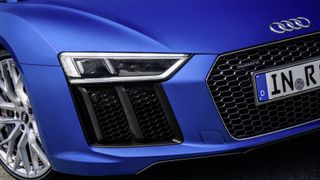
Well, not literally, but headlights are getting ridiculously clever. Audi's use of laser technology in its high-end machines has ushered in a new era of illumination, while automatic high-beam assist can provide optimum light without dazzling oncoming drivers. Volvo will roll out its 'bending' headlight technology to other models in 2016, which automatically swivels the lamps with steering input to light up more of the road ahead.
Mass-market manufacturers, such as Vauxhall and Ford, have started harnessing the power of ultra-bright LEDs to light the way and soon enough, replacing a bulb will be a thing of the past. The upcoming Mercedes E-Class features 84 individual high-performance LEDs at the front rather than the 24 used in the current model, for example, so expect the rear-view mirror to be well and truly 'lit up' next year.
8. BMW i8 Spyder will prove hybrids can be sexy
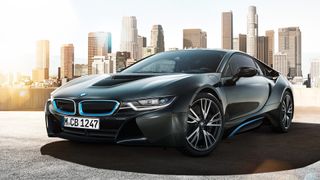
BMW is set to unveil a drop-top version of its ground-breaking i8 model at the Consumer Electronics Show in January, proving that alternative fuel vehicles can be desirable. But it's not just the roof that has changed; BMW plans to unleash a whole host of new tech in Las Vegas.
Most of it is strictly embargoed, but it's fair to say cameras will be used extensively to cover blind spots, while an updated gesture control system is likely to feature. Oh, and highly automated driving will definitely be on the agenda.
9. Gesture control replaces dials
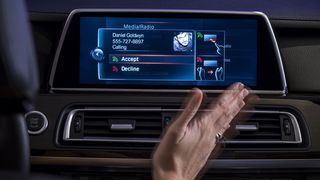
The BMW 7 Series first introduced the world to gesture control earlier this year, with its infrared camera mounted in the rear-view mirror that can pick up hand gestures and control certain infotainment functions. The German marque is set to update this system in 2016 and expectother manufacturers to rapidly follow suit.
Carmakers are constantly looking for ways to de-clutter the dashboard, with Audi and Volvo opting for touch-screens and virtual binnacles this year, but expect the next generation of human-machine interface to do away with touch entirely and instead use interactive surfaces that simply require swipes or gestures to control functionality.
10. Infotainment systems will control the connected home
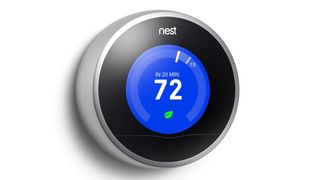
The car is rapidly becoming much more than a tool to get humans to Tescos and back, as the latest multimedia systems allow for emails to be read and sent, hands-free calls to be made and Twitter to be updated on the move, while Nissan is proving that electric cars can be used to power home electronics when not in use.
However, the car will integrate with the home further next year, as on-board tech is used to control elements in the smart home, such as heating and alarm systems.
Continental demonstrated its Holistic Connectivity innovation this year, which is constantly connected to the web and can be used to switch on the home heating when the car is within a two-mile radius or set the Sky box to record your favourite show when on the move.
Leon has been writing about automotive and consumer tech for longer than he cares to divulge. When he’s not testing the latest fitness wearable and action camera, he’s out in a shed fawning over his motorcycles or trying not to kill himself on a mountain bike/surfboard/other extreme thing. He's also a man who knows his tools, and he's provided much of T3's drills coverage over the years, all without injuring himself.
-
 New Biver Carillon Tourbillon Desert Rose is a stunning example of luxury watchmaking
New Biver Carillon Tourbillon Desert Rose is a stunning example of luxury watchmakingIt features all manner of exotic materials
By Sam Cross Published
-
 My favorite gas barbecue is now under $150 in the Amazon Big Spring sale
My favorite gas barbecue is now under $150 in the Amazon Big Spring saleSave $100 on this Master Cook gas grill in Amazon’s spring sale
By Bethan Girdler-Maslen Published
